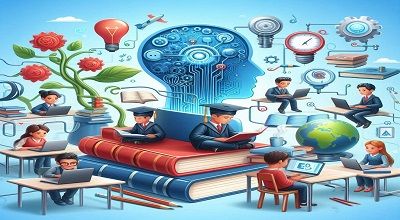Online Vs Offline Education
Online vs offline education, each has its advantages and disadvantages, and the choice between them depends on various factors such as individual preferences, learning styles, and specific circumstances. Here are some key considerations for both:
Online Education:
Advantages:
- Flexibility: Online education allows for greater flexibility in terms of scheduling. Students can access course materials and lectures at their own pace, which is beneficial for those with busy schedules or other commitments.
- Accessibility: Online courses make education accessible to a global audience. Students can participate from virtually anywhere with an internet connection, breaking down geographical barriers.
- Cost-Effective: Online education can be more cost-effective for both students and institutions. There are often fewer overhead costs associated with physical facilities, and students can save on commuting and accommodation expenses.
- Diverse Learning Resources: Online courses often leverage a variety of multimedia resources, including videos, interactive simulations, and digital textbooks, providing a diverse learning experience.
- Personalized Learning: Many online platforms use adaptive learning technologies to tailor the educational experience to individual students, addressing their specific strengths and weaknesses.
Disadvantages:
- Lack of Face-to-Face Interaction: One of the primary drawbacks is the absence of face-to-face interaction with instructors and peers, which can impact social and collaborative learning experiences.
- Technical Challenges: Students may encounter technical issues, such as poor internet connectivity or difficulties navigating online platforms, which can disrupt the learning process.
- Self-Discipline Required: Online learning demands a higher level of self-discipline and motivation, as students need to manage their own schedules and stay on track without the structure of a physical classroom.
Offline Education (Traditional Classroom Setting):
Advantages:
- Face-to-Face Interaction: Traditional classrooms offer direct interaction with instructors and peers, facilitating real-time discussions, questions, and feedback.
- Structured Schedule: Regular class schedules provide a structured routine, helping students manage their time effectively and stay organized.
- Networking Opportunities: Physical classrooms provide opportunities for networking with classmates and professors, creating valuable connections that can extend beyond the classroom.
- Hands-On Activities: Some subjects, particularly those involving hands-on skills or laboratory work, are better suited to an offline setting.
Disadvantages:
- Less Flexibility: Traditional classroom settings may lack the flexibility of online education, making it challenging for students with other commitments or non-traditional schedules.
- Geographical Limitations: Students need to be physically present, which may limit access for those who live in remote areas or cannot relocate.
- Higher Costs: Traditional education can be more expensive due to costs associated with facilities, maintenance, and other on-campus services.
Summary
Ultimately, the choice between online vs offline education depends on personal preferences, learning styles, and specific educational goals. Some individuals may thrive in online environments, while others prefer the structure and social aspects of traditional classrooms. Hybrid models, combining elements of both, are also becoming more common, providing a blended learning experience.
